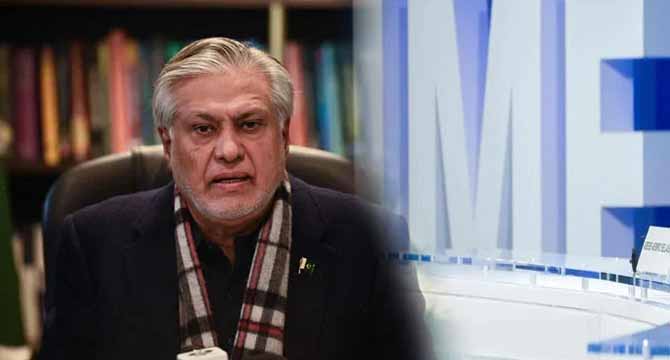Islamabad , June 10, 2023: Minister for Finance and Revenue Ishaq Dar said on Friday the coalition government was in talks with friendly countries to get its bilateral debts restructured as the cash-strapped struggles with its finances.
Speaking on Geo News programme “Aaj Shahzeb Khanzada Kay Saath” after presenting a deficit budget in the National Assembly, Dar said “frankly speaking”, the government is working on debt restructuring and “our sovereign deposits, which are rolled over every year will continue being rolled over in future”.
FinMin Dar said he was against making use of “haircuts” because it was disgraceful to tell someone we cannot give them the Rs100 billion we owe.
“If we have borrowed money, we should return it,” he said, adding that restructuring was not something bad. He said the country would improve its cash flow if it was able to service its interest and stagger the principal repayments.
PM Shehbaz Sharif-led government unveiled a Rs14.5 trillion (around $50.5 billion) budget Friday, with over half set aside to service 7.3 trillion rupees of debt.
A balance-of-payments crisis has struck Pakistan’s economy as it attempts to service crippling external debt, while months of political chaos have scared off potential foreign investment.
Who is behind political instability?
Dar said the International Monetary Fund (IMF) is one of the main contributors to political instability in Pakistan.
The finance minister minced no words as he came down hard on the IMF for delaying the 9th review, saying it had been overdue and should have been completed in February.
Dar was visibly upset when he was asked whether the IMF did not trust him personally, and that was why it was delaying the 9th review. He said the IMF had been totally unfair to Pakistan.
“The IMF is main contributor, one of the main contributors. It is part of political instability.”
When asked what would happen if the 9th review was not finalised, the finance minister said it would be unfair if that happened.
However, he hoped the ninth review would conclude this month. He said the Pakistani media should highlight the unreasonable demands of the IMF.
When asked whether the Pakistani media raising this issue would create any impact, he replied that the media should tell the world about what was actually happening.
IMF and trust issues
FinMin Dar said Pakistan had fulfilled the demands of the IMF, but it was still not trusting the country because of the last government’s actions that had eroded the trust.
The finance minister said the last government of the PTI did not act on its commitments to the IMF in 2019 and even reversed whatever little action it had taken.
Answering a query about whether the IMF would believe that Pakistan could achieve its revenue target, Dar stressed that the IMF should trust the country.
Dar asserted that the country had made every payment it owed to the IMF amid talk of its defaulting on its loans.
“Our first priority was not to let the country default,” he said, adding that the government had to take extraordinary measures that negatively impacted imports and large-scale manufacturing.
‘Hand-holding’
To a question about friendly countries not lending Pakistan $2 billion to satisfy the IMF, Dar said the Fund wanted to hold joint talks with countries like Saudi Arabia and the UAE.
However, Pakistan responded that it did not need “hand-holding” and the IMF should do its professional work.
Dar said Pakistan would hold bilateral talks with friendly countries itself but made it clear that the country did not need $2 billion from friendly countries.
He added that if the board meeting had occurred in February, Pakistan would have received the $2 billion of the pending reviews.
The finance minister said it seemed that Pakistan was being trapped as part of geo-politics. He said he could not talk more about it on TV.
Dar said his government had bridged the credibility gap created by the last government and taken measures that undervalued the exchange rate, but even then, the IMF did not conclude the 9th review, which was unreasonable.

